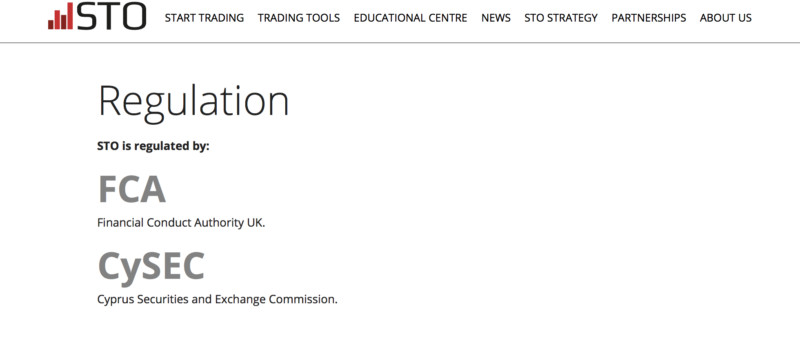AFX Group’s website goes black following CySEC’s action
The website of retail FX entity STO (Super Trading Online), a part of AFX Group, however, is still up and running.

Less than a fortnight has passed since the Cyprus Securities and Exchange Commission (CySEC) announced that the authorisation of AFX Capital Markets Ltd is suspended in whole.
The suspension of the Cyprus Investment Firm (CIF) license of AFX is pursuant to section 71(6)(c) of Τhe Investment Services and Activities and Regulated Markets Law of 2017 and section 10(1) of Directive DI87-05 for The Withdrawal and Suspension of Authorisation (‘DI87-05’), as there are suspicions of an alleged violation of section 22(1) of the Law due to the company’s possible non-compliance at all times with the authorisation condition in section 17(9) (organizational requirements) of the Law, as specified in paragraphs 4, 6 and 9 of Directive DI87-01, regarding the safeguard of clients’ funds.
The Cypriot regulator has given AFX 10 days to comply with the provisions. What happened is that AFX’s website went black. There is no information to clients and partners about what the company is doing with regard to CySEC’s action.

However, the website of STO (Super Trading Online), a retail FX entity that is a part of AFX Group, remains up and running. There is a warning at the top of the page regarding CySEC’s action – and yet, no information to customers about what to do if they want their funds back.

Moreover, the website of STO remains full of claims about how the entity is regulated in Cyprus.

AFX Capital is currently a defendant in a lawsuit in the United States launched by the Chapter 11 trustee of the estates of Gallant Capital Markets and Avenica. According to the Complaint against AFX, throughout 2015 and 2016, Gallant deposited approximately $2.35 million (for its benefit) into a Gallant account maintained at AFX. Within the two-week period prior to Gallant’s commencement of its bankruptcy case, there was a balance of approximately $2.4 million in the Gallant account at AFX. Around that time, Gallant made multiple demands upon Defendants for the turnover of Gallant’s funds—all of which were disregarded.
Nevertheless, AFX withdrew the remaining balance, without authorization and without basis, on the Filing Date—in violation of the automatic stay. This case involves core issues whereby the Trustee is seeking a turnover of Gallant property and recovery of assets of the Gallant estate, and enforcement of the automatic stay.
In May 2019, the Trustee and the AFX Defendants entered into a Stipulation of Settlement resolving the Adversary Proceeding. Under the terms of the settlement, the defendants agreed to pay the sum of $830,000 in full and final satisfaction of any and all claims the Trustee and the Debtors’ estates have or may have.
In accordance with paragraph 1(a) of the Stipulation, the Deposit in the amount of $230,000 was due to be paid into the attorney escrow account of the AFX Defendants by May 30, 2019, which, at the request of the AFX Defendants, was later extended to June 20, 2019 by the Trustee.
When the Deposit was not paid by the extended date, on June 25, 2019, the Trustee sent another demand to the AFX Defendants and asserted that the AFX Defendants were in default of the Stipulation. Despite the default, the Trustee allowed the AFX Defendants until June 26, 2019 at 4:00 pm to provide to Deposit to their attorney’s escrow account. In fact, days before that, counsel for the AFX Defendants provided a written email representing that the “We were told by the client the money was coming and we are waiting for confirmation.”
In the latest status update, the Trustee says the AFX Defendants have been in default under the Stipulation and remain in default.









